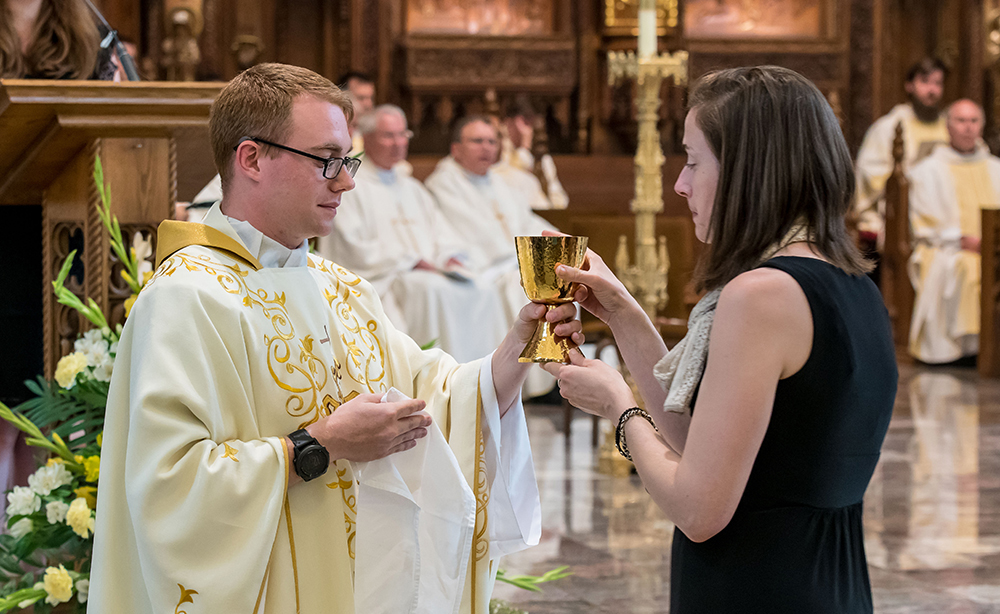The Church’s Code of Canon Law states, “Laymen who possess the age and qualifications…can be installed on a stable basis in the ministries of lector and acolyte” (Canon 230). The text continues, “When the necessity of the Church warrants it, and when ministers are lacking, lay persons, even if they are not lectors or acolytes, can also supply for certain of their offices, namely, to preside over liturgical prayers, to confer baptism, and to distribute holy Communion.”
Pope Paul VI inherited the responsibility for implementing the numerous reforms of the Second Vatican Council. One of these was a fundamental change in the Church’s view of ministry. Inviting lay members of the worshiping community to share the duties of lector and acolyte was one very visible sign of this change. A commentary on the text quoted above remarks: “[The pope] intentionally took this step to emphasize that ministry is not just ordained or sacred ministry. All participate in the mission of the Church.”
One practical result of expanding the Church’s Eucharistic ministry to include the laity is increased service. A well-organized lay ministry can bring the Eucharist to the ill and homebound far more often than an unaided pastor.







